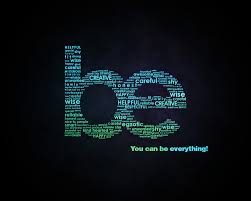记忆方法
记忆“be”这个单词,可以采用“行为是(动词)”的联想方法。想象“be”代表一切存在的“行为”,就像是在描述或表达任何事物的状态或存在。这种联想帮助将“be”与“存在”或“状态”的概念联系起来,从而便于记忆。
以上内容由AI生成, 仅供参考和借鉴
中文词源
be 是,存在
来自PIE *bheue , 存在,生产,将要,同源词包括future, physics。
英语词源
- be
-
be: [OE] There are four distinct components that go to make up the modern English verb be. The infinitive form be comes ultimately from an Indo-European base *bheu-, *bhu-, which also produced, by other routes, future and physical. Its Germanic descendant was *bu-, which signified on the one hand ‘dwell’ (from which we get booth, bower, byre, build, burly, byelaw, and the final element of neighbour), and on the other hand ‘grow, become’, which led to its adoption as part of the verb expressing ‘being’ (in Old English particularly with the future sense of ‘coming to be’). Am and is go back to the ancient Indo- European verb ‘be’, *es- or *s-, which has contributed massively to ‘be’ verbs throughout all Indo-European languages (third person present singulars Greek esti, Latin est, French est, German ist, Sanskrit ásti, Welsh ys, for example) The Indo-European first and third person singular forms were, respectively, ésmi and ésti.
For the present plural Old English used the related sind(on) (as found in Latin sunt, French sont, and German sind), but this died out in the 12th century, to be replaced by are, which comes from a Germanic base *ar- of unknown origin. From the same source is the now archaic second person singular art. The past tense forms was, were come ultimately from an Indo-European base *weswhich meant ‘dwell, remain’.
Related words in other Indo-European languages include Sanskrit vásati ‘dwell, remain’ and Gothic wisan ‘remain, continue’.
=> booth, bower, build, burly, byelaw, byre - be (v.)
- Old English beon, beom, bion "be, exist, come to be, become, happen," from Proto-Germanic *biju- "I am, I will be." This "b-root" is from PIE root *bheue- "to be, exist, grow, come into being," and in addition to the words in English it yielded German present first and second person singular (bin, bist, from Old High German bim "I am," bist "thou art"), Latin perfective tenses of esse (fui "I was," etc.), Old Church Slavonic byti "be," Greek phu- "become," Old Irish bi'u "I am," Lithuanian bu'ti "to be," Russian byt' "to be," etc. It also is behind Sanskrit bhavah "becoming," bhavati "becomes, happens," bhumih "earth, world."
The modern verb to be in its entirety represents the merger of two once-distinct verbs, the "b-root" represented by be and the am/was verb, which was itself a conglomerate. Roger Lass ("Old English") describes the verb as "a collection of semantically related paradigm fragments," while Weekley calls it "an accidental conglomeration from the different Old English dial[ect]s." It is the most irregular verb in Modern English and the most common. Collective in all Germanic languages, it has eight different forms in Modern English:
BE (infinitive, subjunctive, imperative)
AM (present 1st person singular)
ARE (present 2nd person singular and all plural)
IS (present 3rd person singular)
WAS (past 1st and 3rd persons singular)
WERE (past 2nd person singular, all plural; subjunctive)
BEING (progressive & present participle; gerund)
BEEN (perfect participle).
The paradigm in Old English was:SING. PL. 1st pres. ic eom
ic beowe sind(on)
we beoð2nd pres. þu eart
þu bistge sind(on)
ge beoð3rd pres. he is
he biðhie sind(on)
hie beoð1st pret. ic wæs we wæron 2nd pret. þu wære ge 权威例句
- 1. The verb " dance " is regular, but the verb " be " is not.
- 动词 dance 的变化是规则的, 但be的变化是不规则的.
- 2. Instead of complaining about what's wrong, be grateful for what's right.
- 别抱怨不好的事,要对好的事心存感恩。
- 3. The difference between who you are and who you want to be is what you do.
- 你是什么样的人和你想成为什么样的之间的差距就是,你做了什么。
- 4. What will be the effect of the alliance between IBM and Apple?
- 若IBM公司和苹果公司联手将会有什么效果呢?
- 5. Three hundred million dollars will be nothing like enough.
- 3亿美元远远不够。

